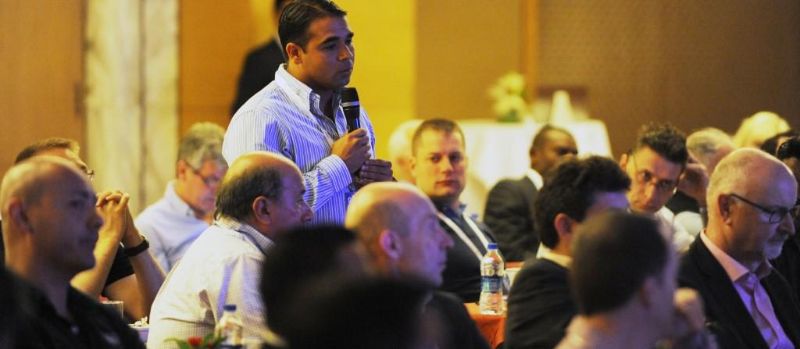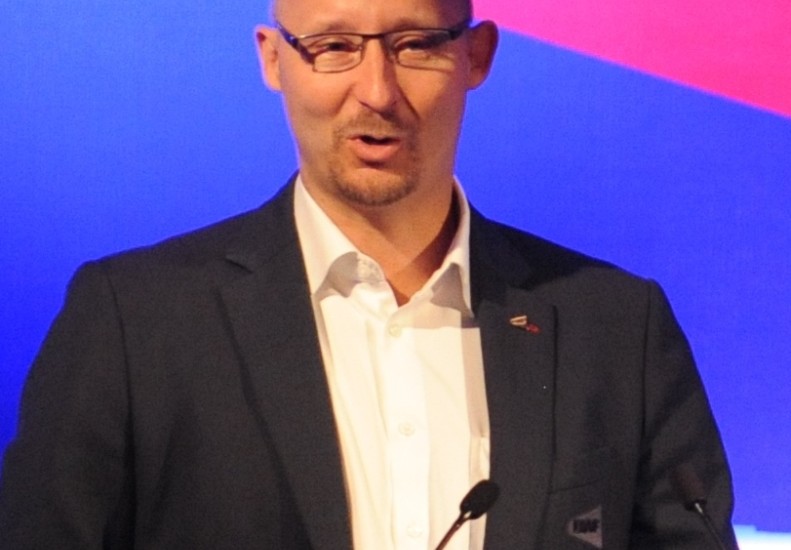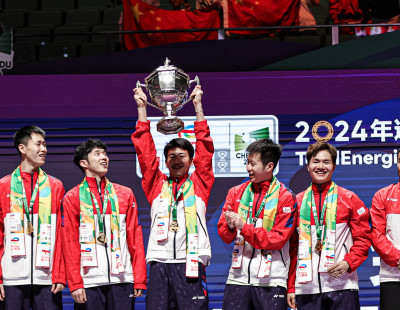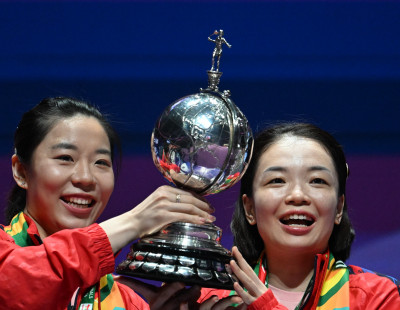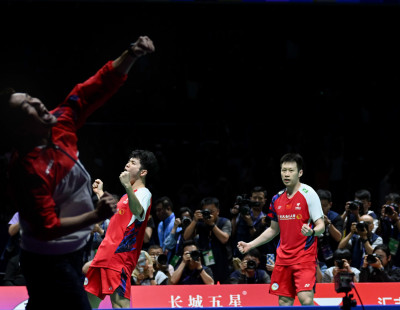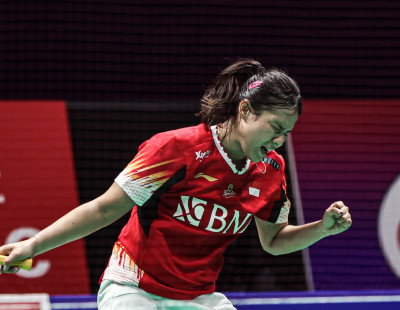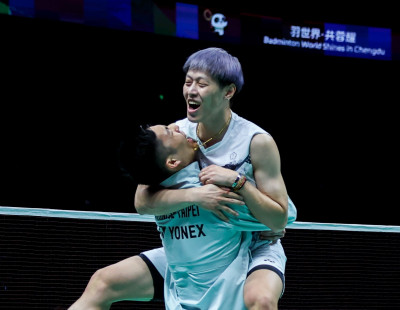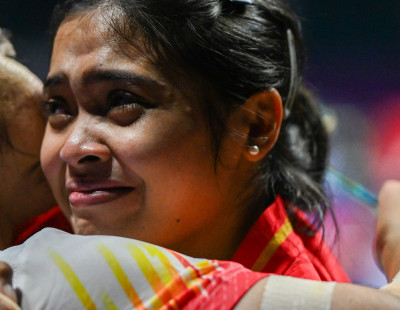The Badminton World Federation’s membership has agreed to examine its scoring system as part of a wider move to embrace innovation and consider further improvements to the sport.
BWF Secretary General Thomas Lund said that, following the world-governing body’s Member’s Forum (below) and Annual General Meeting last weekend, members have expressed that they would like to discuss the matter and engage various stakeholders on the topic.
“Our members have reacted quite positively to this discussion. They have already raised some interesting points but there’s still a long way to go. It is our responsibility, as badminton evolves, to continue looking at ways to enhance it. We want to hear from all our stakeholders and to consider the different views. This is the beginning of a consultative process which will take some months,” he elaborated.
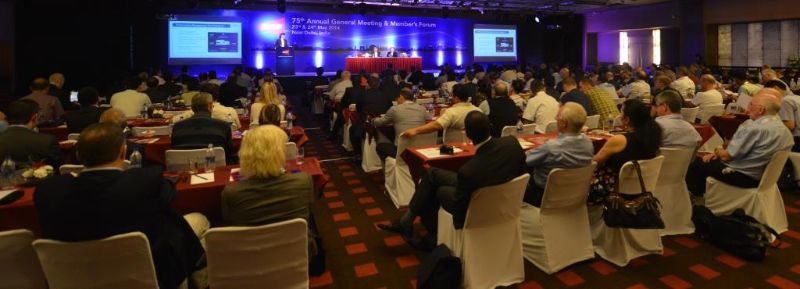
BWF, he stressed, is not at all close to making any decision on the matter but hopes to include other key groups – including fans, media and sponsors – in its deliberations.
“Who knows – the system may not change. We don’t know and, even if the prevailing sentiment is that there should be some change, then there would need to be a consensus on what change and then a period of testing and evaluation,” Lund noted.
The BWF Secretary General assured players’ interests would be given the highest consideration in the matter. The BWF has already reached out to players at a 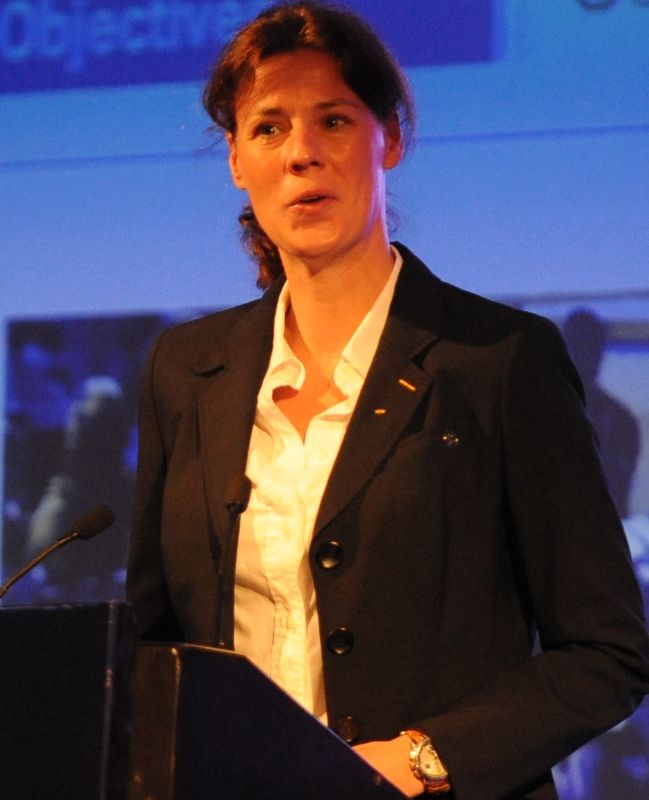 meeting prior to the recent BWF Thomas & Uber Cup Finals in New Delhi, India, and via a questionnaire in which players’ opinions were sought.
meeting prior to the recent BWF Thomas & Uber Cup Finals in New Delhi, India, and via a questionnaire in which players’ opinions were sought.
Keynote speaker at the BWF Member’s Forum, Chair of the International Olympic Committee’s Athletes’ Commission, Claudia Bokel (right), also struck a chord regarding athletes, emphasising the importance of them preparing for the future while in the prime of their sporting careers.
The former fencing World champion cited the IOC Athlete Career Programme as one such initiative catering to athletes; opening doors to internships and training which can parlay into jobs after retirement from sport. There is also the Athlete Performance Management Tool which enhances an athlete’s knowledge base of their sport and the IOC Athlete MOOC (Massive Open Online Course) – an online platform delivering free educational content to athletes worldwide.
Bokel also raised the issue of entourages around athletes and the influence which these persons, including relatives, coaches and managers, have and the need for them “to do the right things for athletes”. Should they be found in breach of any regulations, they should face sanctions, she contended, especially regarding doping violations because “athletes want to play in a clean environment”.
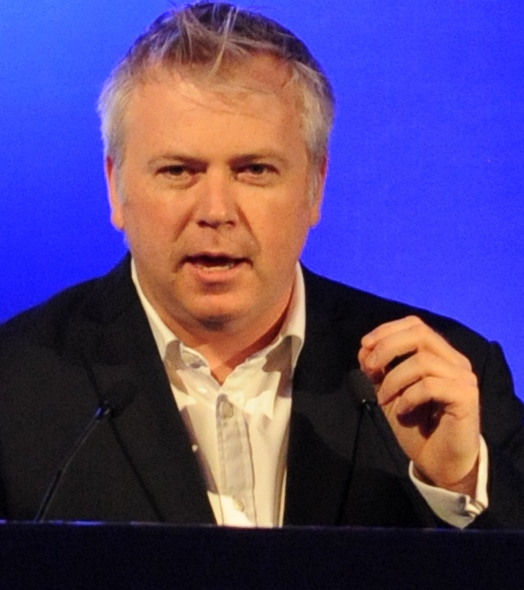 Speaking about the development of player pathways – plans which take athletes from “grassroots level to podium success” – Director of the World Academy of Sport, Chris Solly (left), said “athletes should be at the centre of everything we do” and the infrastructure should be in place to facilitate their progress. This set-up gives clarity to athletes, their entourages and other stakeholders. It’s a major task at national level, he conceded, but it is possible.
Speaking about the development of player pathways – plans which take athletes from “grassroots level to podium success” – Director of the World Academy of Sport, Chris Solly (left), said “athletes should be at the centre of everything we do” and the infrastructure should be in place to facilitate their progress. This set-up gives clarity to athletes, their entourages and other stakeholders. It’s a major task at national level, he conceded, but it is possible.
Badminton Guatemala was held up as a success story, with association president Jose del Busto (below; addressing Member’s Forum) detailing how they run country-wide coach education and grassroots programmes to scout talent youth. These players are recruited and relocate to the national training centre where all their training, educational, medical and other needs are met.
“Having this in place they can compete regionally and internationally and they are getting good results,” said del Busto, noting that London Olympics 2012 Men’s Singles quarter-finalist, Kevin Cordon, is a product of this system.
